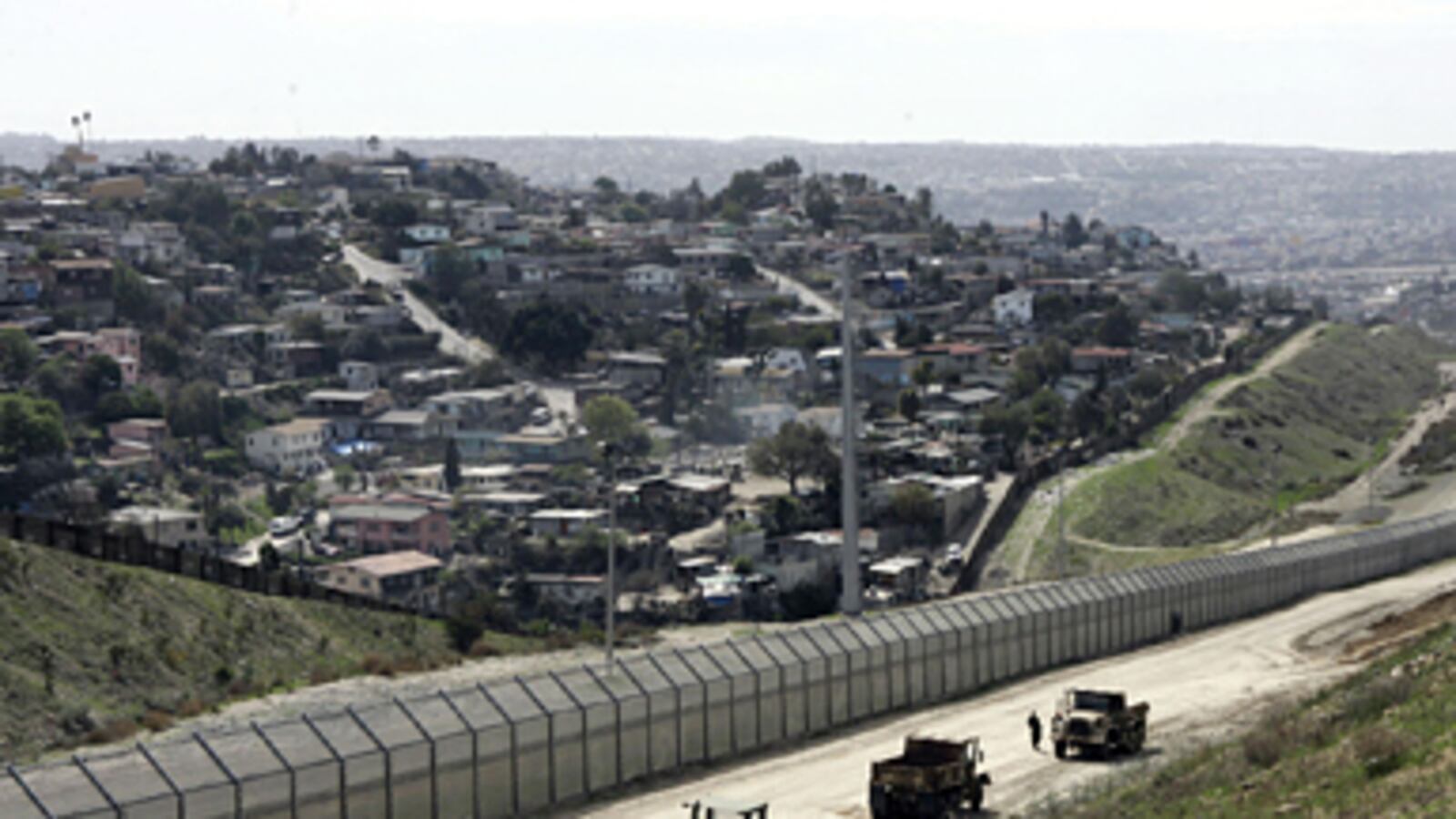President Barack Obama apparently thinks that respect for rule of law is only important north of the Rio Grande. In a desperate attempt to help Mexico´s President Felipe Calderón with his "drug war," Obama has authorized the U.S. military and other government agents to violate the Mexican constitution.

U.S. agents both actively participate in the wiretapping of drug-trafficking suspects in Mexico and carry their weapons when they travel south of the border, according to The New York Times. As of last month, U.S. military-intelligence drones similar to those deployed in Afghanistan and Iraq began to operate in Mexican airspace. Such actions are entirely unprecedented in the history of U.S.-Mexican relations and could easily backfire as the Mexican population rejects such a blatant attack on its sovereignty.
Imagine armed Mexican agents tapping phone lines and flying military planes over Texas and Arizona in search of gun-shop owners and straw-buyers responsible for arming the drug cartels in Mexico. Such actions would not be tolerated by the American people and any suggestion that this were taking place would lead immediately to a high-level congressional inquiry. Although international coordination and support is always helpful, the U.S. legal framework correctly conceives of law enforcement as an eminently domestic affair.
The same is true in Mexico. Mexican law explicitly prohibits foreign agents from carrying weapons or being directly in charge of wiretaps or criminal investigations on Mexican territory. The Mexican constitution also requires the president to gain approval of its senate before allowing foreign military operations in domestic airspace. The general outcry in Mexico against these actions is therefore not a result of backward "nationalistic elements in the political elite," as one expert has claimed, but a healthy defense of fundamental constitutional principles. This Thursday, Mexico’s foreign secretary, Patricia Espinoza, received a well-deserved shellacking at the hands of leading senators from all of the major political parties, including the sitting government’s Nacional Action party.
The fact that the Calderón administration has turned a blind eye, or even encouraged, such blatant violations of the law should not provide solace but generate concern. Calderon has generally trampled on the rule of law since inaugurating his "drug war" four years ago. His government has avoided attacking head-on the institutional, financial, social, and economic roots of the problem. Instead, with U.S. support, it has preferred a "decapitation" strategy aimed at killing top drug lords and permitting inter-cartel fighting in the hope that this will weaken the criminals in the long run.
The problem with this strategy is that it becomes increasingly difficult to distinguish between the tactics of the drug cartels and those of the government. Instead of investigating and prosecuting crimes, the assumed "criminals" are simply wiped out without any due process. In addition, innocent bystanders often fall dead at military checkpoints or during government attacks on the cartels. Mexico’s National Human Rights Commission reported at least 110 such cases during 2010 alone. In one recent incident, troops even decorated a dead capo´s body with dollar bills and golden jewelry and exhibited it as if it were a trophy in their “war on drugs.”
By following along with Calderón's reckless strategy, the Obama administration loses all moral high ground. This is particularly relevant today given the serious blow the U.S. government has taken recently for its " Fast & Furious" program. In this program the Bureau of Alcohol, Tobacco, Firearms and Explosives intentionally allowed at least 1,700 assault weapons to cross the border and find their way into the hands of some of the most blood-thirsty Mexican criminals. The Mexican congress, civil society groups, and even the Catholic Church have all forcefully protested against the program. The U.S. ambassador to Mexico, Carlos Pascual, has come under heavy fire for not adequately informing the Mexican government of these actions.
By following along with Calderón's reckless strategy, the Obama administration loses all moral high ground.
The use of U.S. military drones and other illegal tactics in Mexico could also deal a death blow to Calderon. Forty-three percent of the population now disagrees with the way the generally pro-American Mexican president is handling the bilateral relationship, up 12 percentage points from last year. And the more Calderon is perceived as passive in his relationship to the U.S., the more his approval ratings fall. Although Obama probably thinks that he is strengthening Calderon with his actions, the U.S. president is actually weakening his Mexican counterpart in the eyes of the Mexican people.
Instead of sending drones across the border, the U.S. government should stop the southern flow of weapons. Obama´s opinion piece last Sunday in the Arizona Daily Star opens up a much-needed debate on the issue of enforcing existing gun laws in the context of the attack on Congresswoman Gabrielle Giffords. Nevertheless, Obama simply failed to mention the link between this issue and the 35,000 deaths south of the border over the past four years. In addition to strengthening background checks for U.S. purchasers, the ATF also needs to significantly boost its surveillance of the illegal resale and exportation of assault weapons to Mexico. This sort of lapse confirms Obama´s underlying lack of commitment to Mexico and the Mexican people. It is time to change course before it is too late.
John M. Ackerman is a professor at the Institute for Legal Research of the National Autonomous University of Mexico, editor in chief of the Mexican Law Review, and a columnist for Proceso magazine and La Jornada newspaper. His website is johnackerman.blogspot.com.






